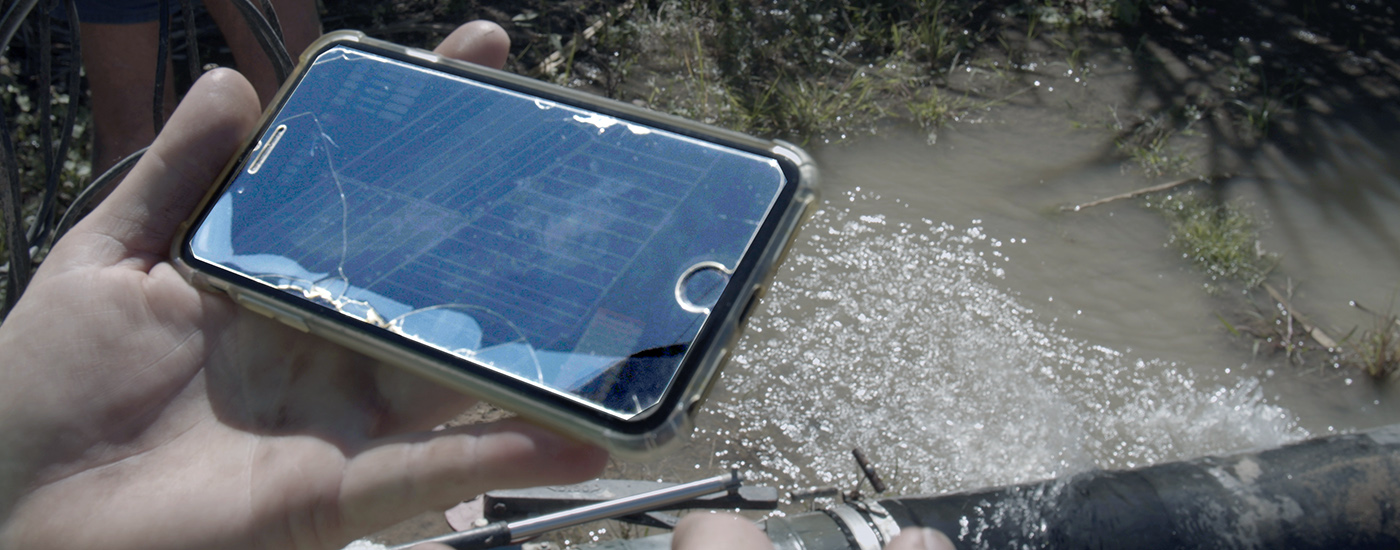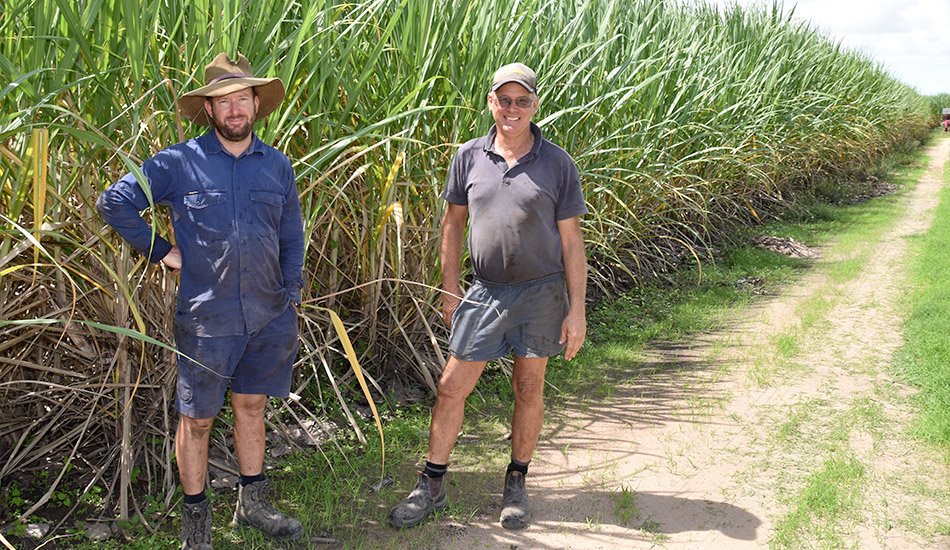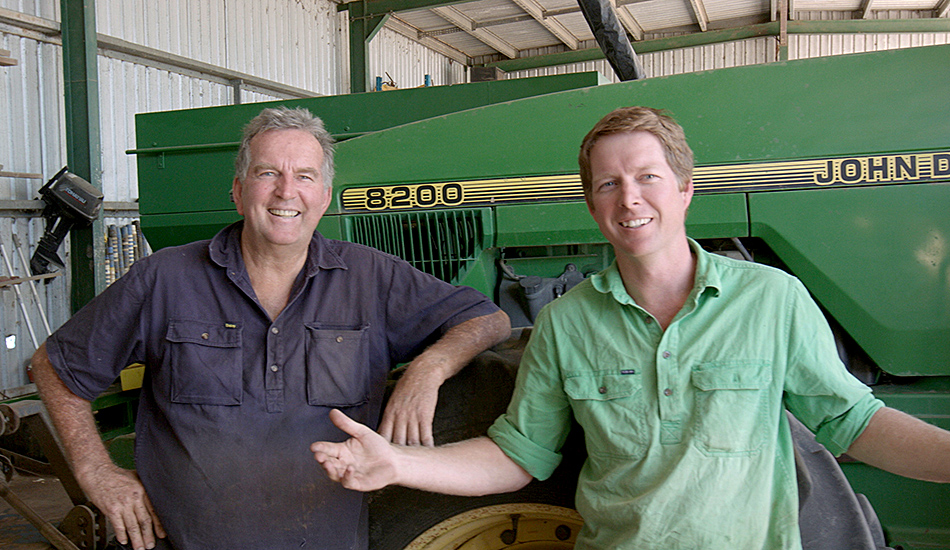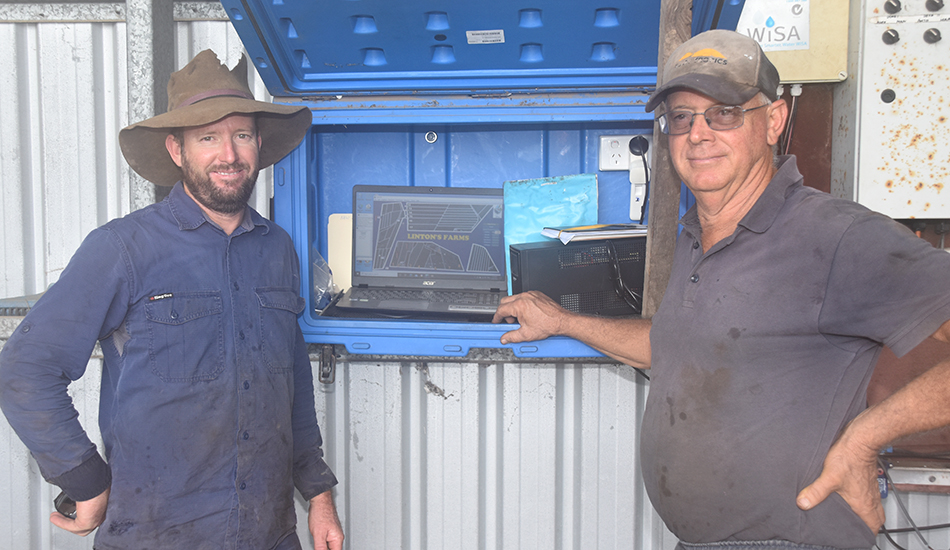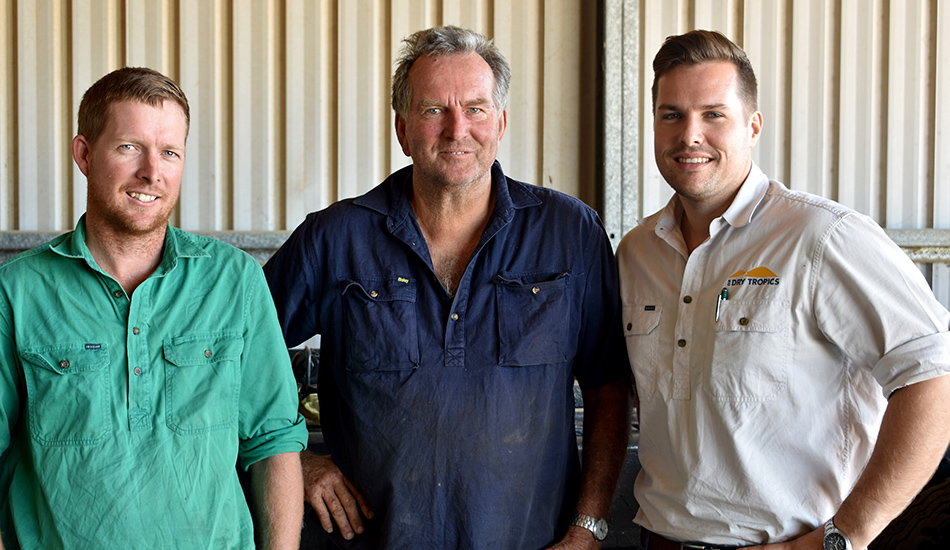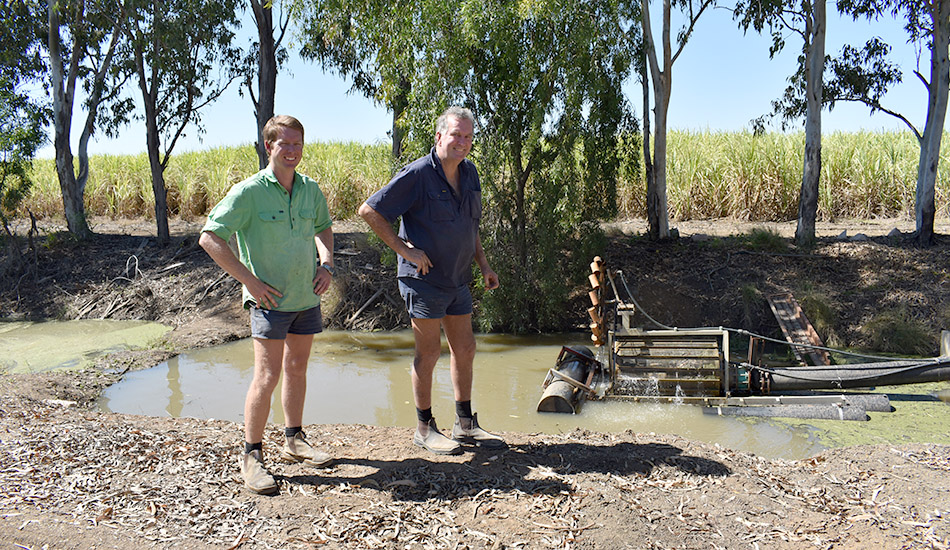Automated irrigation has saved water, power and, most importantly, time for cane farmers in the Lower Burdekin
More cane, less water, less energy, less ecological impact
BURDEKIN cane farmers involved in a project targeting innovative farming practices have succeeded in making spectacular savings in the amount of water and power needed to grow their crops.
Four properties installed automated furrow irrigation across 530ha and realised significant economic benefit by achieving annual savings of more than 1600ML of water and 80,000kW of electricity.
The environment also benefited with a reduction of about 1700kg of Dissolved Inorganic Nitrogen (DIN) leaving the farm, and potentially flowing out to the Great Barrier Reef.
The irrigation improvements also resulted in reduced pesticide and sediment leaving the farm and an estimated 65 tonne reduction in greenhouse gas emissions.
Well-designed automated furrow irrigation systems can significantly reduce the amount of water used. Depending on soil type, the farmers applied between 13 per cent and 44 per cent less water.
The most spectacular savings were achieved by a fifth grower, Joe Linton, who made a quantum leap from manual furrow irrigation to an automated sub-surface drip irrigation system.
It resulted in him reducing the amount of water applied by 80 per cent on a problematic 19ha paddock.
He also saved more than 60,500kW in electricity — worth about $900 per hectare — and 933 tonnes of greenhouse gas emissions.
The calculated annual reduction in DIN was 8 kg per ha which is the equivalent of approximately 40 kg/ha of applied N.
When Mr Linton and son Aaron installed the sophisticated underground drip system on their Home Hill home farm in 2019, it was the realisation of a 10-year-old ambition.
The Hurney Farm, a neighbouring block purchased eight years ago is largely managed by Joe Linton. The difference in the way the two farms are managed could not be more stark.
The Hurney Farm is a manually-operated furrow-irrigation system, a different beast to the gold standard system running the home farm.
“Since we installed the drip system, I tell people, I live on this farm [the home farm], but I work on the other farm,” Joe Linton said.
A report commissioned by NQ Dry Tropics and compiled by Steve Attard from AgriTech Solutions said the economic benefits to farmers was calculated purely on the cost of installation and immediate water and energy savings.
“This grossly underestimates the actual benefits to the farmers’ quality of life and other social benefits extending to the growers’ family,” he said in the report.
He said there was potential to realise further irrigation gains by optimising the most effective flow rate and frequency of application for each block.
Mr Attard said the cost-benefit analysis considered only the financial aspect of the switch to an automated irrigation system, and did not include the considerable benefits to their quality of life and social benefits that would also affect the whole family.
“Nor does it consider how the families felt about improved stewardship of their land and their environmental credentials, particularly as perceived by the public,” he said.
Father and son Clare growers Don and Heath Slater laud the lifestyle benefits of the change to automated irrigation.
“It’s empowering,” Don said.
“It really has had a big impact on our lifestyle as well as on the running of the farm.”
The Burdekin Innovation grant funding round of the Australian Government Reef Trust: Reef Alliance Project ‐ Growing a Great Barrier Reef administered by NQ Dry Tropics through the partnership between the Australian Government’s Reef Trust and the Great Barrier Reef Foundation.
Home Hill cane growers Aaron (left) and Joe Linton inspect a block of cane that even in its eighth ratoon is growing well.
Don (left) and Heath Salter.
Home Hill cane growers Aaron (left) and Joe Linton at the centre of automated drip irrigation system they have installed on their home farm.
Heath (left) and Don Salter with NQ Dry Tropics Sugar Team Leader Luke Malan.
Heath (left) and Don Salter.

